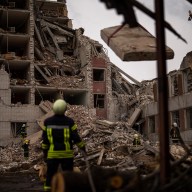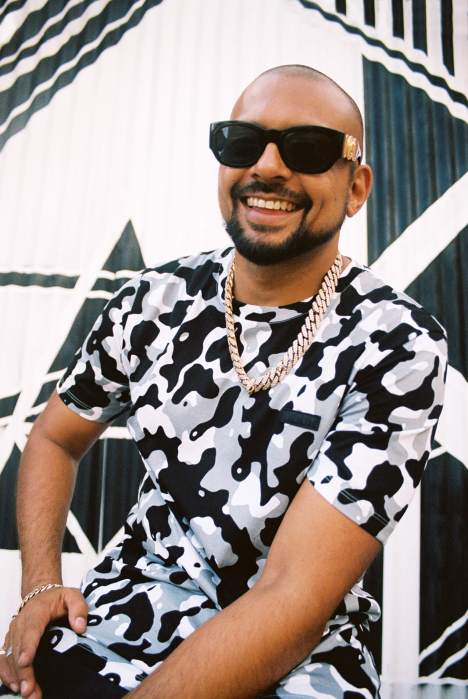MONTREAL – A Canadian man facing beheading in Saudi Arabia wrote to Prime Minister Stephen Harper detailing that he was tortured into confessing to a murder he says he did not commit.
In the one-page letter, a copy of which was obtained by The Canadian Press, Mohamed Kohail implores Harper to use “every way possible to get me out of this situation.”
The letter, handed over to Canadian MP Deepak Obhrai when the latter visited him in a Jidda prison last December, discusses his deteriorating health and his two-year plight in jail.
“Mr. Harper, I have been in jail for two years now,” Kohail wrote. “I am imprisoned with hundreds (of) high-profile criminals in Saudi Arabia for a crime that I did not commit.
“I’ve lost my hair, two years of my life and see death coming to me closer every day,” he added.
Kohail, 24, and a Jordanian friend, Muhanna Ezzat, were convicted of murder after Munzer Al-Hiraki was killed in a January 2007 after-school brawl in Jidda which apparently started when Kohail’s younger brother, Sultan, was accused of insulting a girl.
The brothers have repeatedly said they were acting in self-defence and were not involved in inflicting the fatal wounds during the fight, which involved dozens of teen boys.
Mohamed Kohail was convicted of murder last year and ordered beheaded while Sultan, 18, was initially sentenced as an accessory to a year in jail and 200 lashes. The victim’s family then appealed, resulting in a probable new trial for Sultan.
Both brothers and their friend have claimed their innocence and say the Saudi judicial system has not afforded them a fair trial.
Kohail said he was only informed that Al-Hiraki had died after he’d signed the confession. That same confession was then used against him in the court proceedings.
“I was tortured to sign a confession,” Kohail said.
“I was misinformed that I would be allowed out of custody the moment I signed it.”
In an interview Tuesday, Obhrai said he met with Kohail and his family without the presence of Saudi officials.
“He did not at any given time tell me about torture,” Obhrai said, acknowledging that he received a letter from Kohail, but that he would not comment further on its contents due to privacy issues.
“I was there and as far as I know there is no question of torture, nor did he raise it to me or anything.”
He refused to say whether Harper ever saw the letter.
Obhrai, the parliamentary secretary to Foreign Affairs Minister Lawrence Cannon, said Ottawa is committed to seeking clemency for both brothers.
“It has to be worked within the confines of the Saudi law and it’s important to recognize that and work with the Saudi officials to come to a resolution,” Obhrai said.
But Liberal MP Dan McTeague, who has been closely involved in the case, says the letter is troubling if the torture allegations are true.
“I have no doubt in my mind about the veracity of what he’s said and I have no doubt in my mind the Canadian government is aware of this,” said McTeague, the Liberal consular affairs critic.
“I would suspect the government would have raised this with the highest authorities … anything short of that would be seen as irresponsible and an abdication of our responsibility under our consular obligations to Canadians abroad.”
Saudi Arabia’s Supreme Judicial Council is currently studying a decision by the Jidda General Court to uphold the sentences given Mohamed Kohail and Ezzat.
“Mr. Harper, I’m 24 now and I don’t know how much (more) time I will spend in prison or how much time is actually left on my life,” Kohail writes.
“You have ordered your officials to seek clemency for me in Saudi Arabia back in early March (of 2008). However, I have not seen tangible actions made since then.”
The Canadian government has said it will seek clemency for Kohail but, in the letter, Kohail says his family has largely been kept out of the loop and that the Canadian government’s representative has been denied access to the court hearings.
“Every time I was assured by the Canadian Embassy (representative) that the government is working secretly on the highest level of officials, the court upholds the death penalty,” Kohail said.
Barring a favourable court decision, the family can only rely on the involvement on the Saudi king to push for the payment of dia, or blood money, to forgive the accused.
But the victim’s family is reportedly asking for about $5 million in blood compensation, well beyond the means of the Kohail family. And the Canadian government does not get involved in financial payment of such matters, McTeague said.
“It would be well beyond the means of a family who is broken and destitute and living on the charity of others in the Saudi kingdom and back home in Canada,” McTeague said.
And the victim’s relatives in Saudi Arabia have repeatedly said no deal will be made before the courts have ruled. As both families have strong ties to Canada, McTeague said Harper could intervene with them as well as with the Saudi king.
Kohail also indicated his Canadian citizenship may have worked against him and actually pushed public opinion and the judges to seek a harsher sentence.
“I was told by the judges that I should not think I would escape the death penalty … since I am Canadian,” Kohail wrote, adding he is referred to in court as ‘the Canadian’ instead of by name.
The Kohail brothers, who are of Palestinian origin, have been Canadian citizens since 2005. The family relocated from Montreal to Saudi Arabia in 2006, but have said they always intended to return to Canada.
“I want to come back to Canada to finish my degree – me and the rest of the family – and continue my life as a good citizen.” a desperate Kohail wrote.
Supporters in Canada are awaiting word from the Supreme Judicial Council, but Aubrey Harris of Amnesty International Canada says the process is quite secretive.
“We’re hoping that the Supreme Judicial Council rejects the death sentence as we feel this an inappropriate sentence for this situation,” said Harris, who is the co-ordinator of the Amnesty International campaign to abolish the death penalty
Amnesty International statistics suggest at least three dozen people have been executed in Saudi Arabia this year, including two juveniles on May 10.
Some 102 death sentences were carried out by Saudis in 2008.















